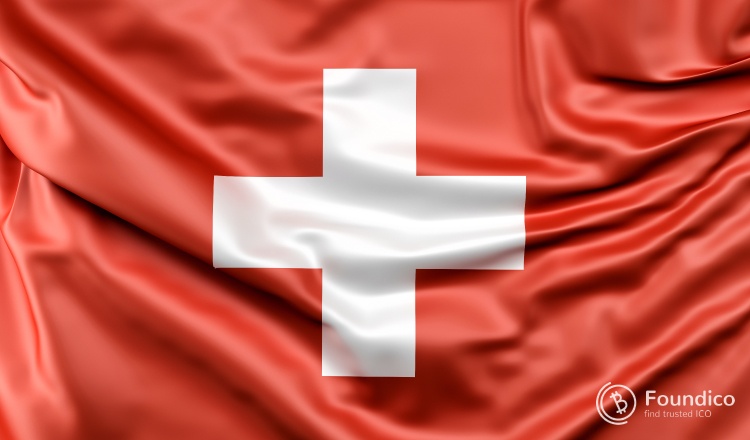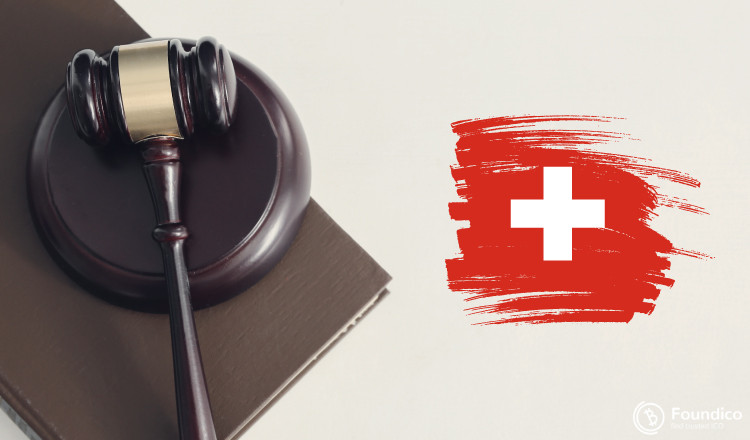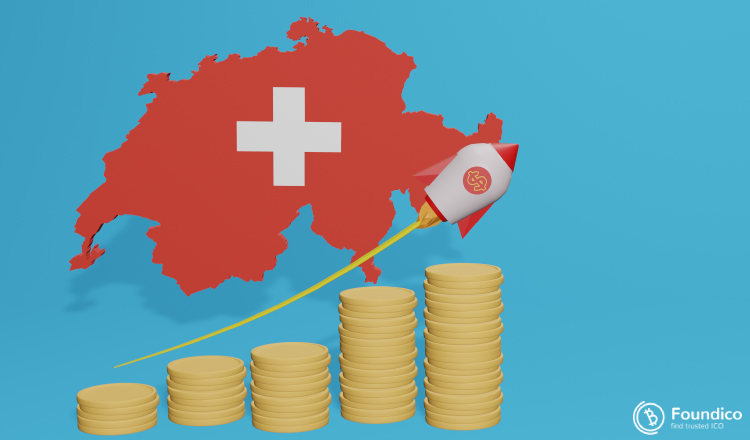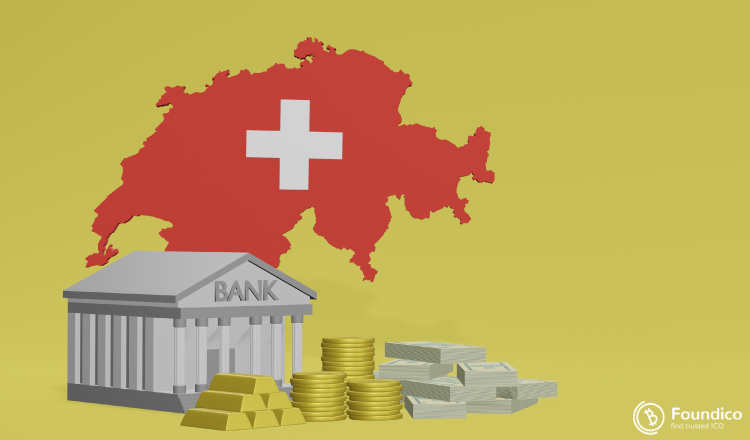Cryptocurrency Regulations in Switzerland

Intro
Switzerland, officially known as the Swiss Confederation, is a landlocked country located at the crossroads of Western, Central, and Southern Europe.
It is a federal republic with federal authorities headquartered in Bern, consisting of 26 cantons. Switzerland is bordered on the south by Italy, on the west by France, on the north by Germany, and on the east by Austria and Liechtenstein.
Despite the fact that the Alps cover the majority of the country, the Swiss population of 8.5 million people is concentrated mainly on the plateau, which is home to the country's largest cities and economic centers, including Zürich, Geneva, and Basel.
Several international organizations have offices in these cities, including FIFA's headquarters, the UN's second-largest office, and the Bank for International Settlements' main building.
The Old Swiss Confederacy was established in the late Medieval Period as a result of a series of military successes over Austria and Burgundy.
The Peace of Westphalia, signed in 1648, declared Switzerland's independence from the Holy Roman Empire. On Swiss National Day, the Federal Charter of 1291 is commemorated as the country's founding document. Switzerland has retained a strict policy of armed neutrality since the 16th century Reformation. It hasn't waged a foreign war since 1815 and only joined the UN in 2002. Despite this, it pursues an active foreign policy and is actively involved in global peace-building processes.

Switzerland is the headquarters of the Red Cross, one of the world's oldest and most well-known humanitarian organizations, as well as a number of international organizations, including the United Nations Office at Geneva, which is the world's second-largest.
It is one of the founding members of the European Free Trade Association, but it is not a member of the European Union, the European Economic Area, or the Eurozone. However, bilateral treaties allow it to participate in the Schengen Area and the European Single Market.
Switzerland is situated at the crossroads of Germanic and Romance Europe, as shown by its four linguistic and cultural regions: German, French, Italian, and Romansh. Despite the fact that the majority of the population speaks German, Swiss national identity is based on a shared history, shared principles such as federalism and direct democracy, and Alpine symbolism.
It is a developing country with the highest nominal wealth per adult and the eighth highest per capita gross domestic product, as well as a reputation for being a tax haven. Some international metrics, such as economic competitiveness and human development, place this country in the top ten.
Its cities, such as Zürich, Geneva, and Basel, are among the best in the world in terms of quality of life, despite having some of the world's highest living costs. Switzerland was ranked first in recruiting professional employees by IMD in 2020. It is ranked as the fifth most competitive country in the world by the World Economic Forum.

Economy
Switzerland has a stable, healthy, and high-tech economy and is wealthy, having been ranked as the wealthiest country in the world per capita in several rankings.
The country has been rated as one of the least corrupt in the world, but its banking sector has been ranked as one of the most corrupt. It has the world's twentieth highest nominal GDP and thirty-eighth largest purchasing power parity economy. It ranks seventeenth in terms of exports.
Basel is the pharmaceutical industry's capital in Switzerland. It is also one of the world's most important centers for the life sciences industry, with world-class companies such as Novartis and Roche, as well as many other players.
Switzerland was ranked 5th in the world in terms of GDP per capita adjusted for purchasing power by the World Bank in 2018, and 9th by the IMF in 2020, as well as 11th by the CIA World Factbook in 2017.
Switzerland's economy is currently ranked as the most dynamic in the world by the World Economic Forum, and Europe's most innovative country by the European Union. It is a reasonably easy place to do business, ranking 20th out of 189 countries in the World Bank's Ease of Doing Business Index.
Switzerland's slow economic growth in the 1990s and early 2000s prompted more support for economic reforms and harmonization with the European Union.

Switzerland was the richest country in Europe for most of the twentieth century (in terms of GDP per capita). The canton of Basel-City, ahead of the cantons of Zug and Geneva, had the highest GDP per capita in the country in 2018.
According to Credit Suisse, only about 37% of residents own their houses, making it one of Europe's lowest homeownership rates. In 2007, housing and food prices in the EU-25 index were 171% and 145%, respectively, compared to 113% and 104% in Germany.
Manufacturing is the most important economic sector in Switzerland. Manufacturing includes the development of specialty chemicals, health and pharmaceutical products, science and precision measuring devices, and musical instruments, among other things. Another significant industry for Switzerland is the service sector, which includes banking and insurance, tourism, and international organizations.
Switzerland has a largely private-sector economy and low tax rates compared to the rest of the Western world; its total tax burden is one of the lowest among developed countries.
In 2004, approximately 25% of workers in Switzerland were members of a trade union. The median monthly gross salary in Switzerland in 2016 was 6,502 francs (equivalent to US$6,597), which was high enough to keep the high cost of living. With a Gini coefficient of 29.7, Switzerland ranks among the top 20 countries for income equality, despite the fact that 61% of the population earns less than the average.
Regulation of cryptocurrency in Switzerland
The Swiss Canton of Zug is trying to establish itself as a hub for cryptocurrencies and Fintech start-ups. On November 2, 2017, the Commercial Register Office in the Canton of Zug started accepting bitcoin and ether as payment for administrative costs.
Furthermore, the Commercial Register accepts cryptocurrencies as a contribution in kind for purposes of forming a company. In the city of Zug, municipal services (resident registration) of up to CHF200 (about US$210) can be paid with bitcoin.
On January 1, 2018, the municipality of Chiasso, in the Swiss Canton of Ticino, started accepting bitcoin as tax payments for amounts of up to CHF250 (around US$263).
On February 16, 2018, the Swiss Financial Market Supervisory Authority (Eidgenössische Finanzmarktaufsicht, FINMA) published guidelines on the regulatory treatment of ICOs, which complement its earlier FINMA Guidance from September 2017.
Currently, there is no ICOspecific regulation, nor is there relevant case law or consistent legal doctrine. FINMA stated that due to the fact that each ICO is designed in a different way, it must be decided on a case-bycase basis whether and which financial regulations are applicable.
In an ICO, investors receive Blockchain-based coins or tokens in exchange for the funds they transfer. The tokens are created and stored either on a Blockchain specifically created for the ICO or on a pre-existing Blockchain.

FINMA differentiates between payment tokens (cryptocurrencies), utility tokens, and asset tokens. Payment tokens (cryptocurrencies) are defined as tokens that are used as a means of payment or as a means of money or value transfer. Utility tokens are those that provide digital access to an application or service by means of a Blockchain-based infrastructure.
Asset tokes represent assets such as a debt or an equity claim against the issuer. According to FINMA, asset tokens are analogous to equities, bonds, and derivatives.
Operators of financial market infrastructures are subject to authorization by FINMA. If the tokens received in an ICO qualify as securities, trading will require authorization.
Securities are defined as “standardized certificated or uncertificated securities, derivatives and intermediated securities which are suitable for mass standardized trading,” meaning they are “publicly offered for sale in the same structure and denomination or are placed with more than 20 clients, insofar asthey have not been created especially for individual counter parties.” FINMA does not treat payment tokens or utility tokens whose sole purpose is to confer digital access rights as securities.
However, utility tokens that have an additional investment purpose or a sole investment purpose at the time of issue, as well as asset tokens that are standardized and suitable for mass standardized trading, are classified as securities.
Funds raised in an ICO generally do not qualify as deposits within the meaning of the Banking Act. However, if there are liabilities with debt capital character, for example a promise to return capital with a guaranteed return, then such an ICO would require the organizer to obtain a banking license.
When assets collected as part of the ICO are managed externally by third parties, the provisions of the Collective Investment Schemes Act apply. Provisions on combating money laundering and terrorist financing, which give rise to a range of due diligence requirements, apply to the ICO of a payment token (cryptocurrency) as soon as the tokens can be technically transferred on a Blockchain infrastructure.
In addition, the exchange of a cryptocurrency for fiat money or a different cryptocurrency as well as the offering of services to transfer tokens if the service provider maintains the private key (custody wallet provider) equally trigger the due diligence requirements according to the Anti-Money Laundering Act.
In September 2017, FINMA closed down the unauthorized providers of the fake cryptocurrency “E-Coin”, liquidated the companies, and issued a general warning about fake cryptocurrencies to investors. Furthermore, three other companies were put on FINMA’s warning list due to suspicious activity and eleven investigations were conducted into other presumably unauthorized business models relating to such coins.
In Switzerland, the individual cantons, the Swiss states, are obligated to levy income tax and wealth tax on the total property (assets and rights with a cash value) of taxpayers that are resident in their canton. Tax rates vary between the individual cantons.
Cryptocurrencies are treated like foreign currencies for tax purposes and are subject to wealth tax. Holders of bitcoin or other cryptocurrencies are taxed at the rate determined by the tax authorities on December 31 of the fiscal year. As an example, the tax rate for bitcoin determined on December 31, 2017, by the Swiss Federal Tax Administration was CHF13,784.38 (about US$14,514). This rate is a recommendation for the cantonal tax authorities.
In January 2018, the Swiss State Secretariat for International Finance (Staatssekretariat für internationale Finanzfragen, SIF) reported that it would set up a working group on Blockchain and ICOs. The working group will work together with the Federal Ministry of Justice and FINMA and involve interested businesses.
It will study the legal framework for financial sector-specific use of Blockchain technology with a particular focus on ICOs and report back to the Federal Council, the Swiss government, by the end of 2018.
